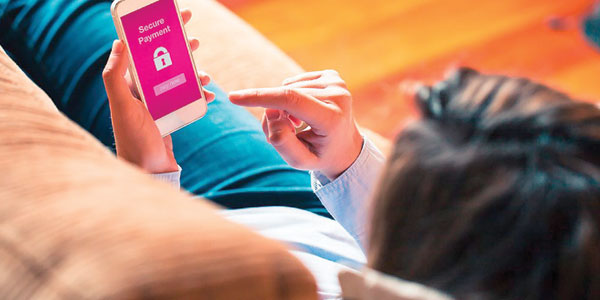
By Jorge Ramos
Did you sleep next to your smartphone last night? I bet you did. Many of us check our phones before we say “good morning” to anyone. According to recent studies, 89% of us look at our phones within the first hour after waking up, and our phones hold our attention for the rest of the day; we spend five hours a day, on average, using them.
It’s not difficult to understand why: Our phones give us the false notion we are connected to the world. We spend our day documenting what we do to show “friends and family,” an abstract community that can also include co-workers or even strangers. Attending a concert is not enough for us; we are compelled to offer digital proof that we were there. Eating a great meal is not enough; we must upload photos of our tacos or of the strawberries and cream we just consumed. Having a beautiful baby is not enough; let’s share a video of him trying to put his hand inside some poor dog’s mouth.
We are hyperconnected. Our lives are in the hands of others, quite literally.
Our privacy is gone. We lost it when we agreed to let strangers come with us to the bathroom, the kitchen, to all our favorite spots. And technically, we weren’t even deprived of our right to privacy; we’ve waived it by constantly clicking and posting. My life is our life.
Every day we share parts of ourselves on social media. And that information will live forever. There are, after all, no graveyards on the internet. All our words and pictures, our data, exist in a sort of virtual limbo. And trying to delete something from the internet can be futile. In fact, merely attempting to remove something can cause us to multiply our sins on many platforms.
While it’s mostly our fault that our privacy is lost, we’ve also been extremely naive in thinking that all the data we provide when we buy something online ― or when we book a flight or hotel or check out a new site ― will be zealously safeguarded. Not true.
The internet is insatiable, and it doesn’t know how to keep secrets. It consumes and remembers every detail you give it. The other day, I got on my laptop and ordered kneepads for my Saturday soccer practices. The next time I checked my favorite news site, there was a vertical
banner stretched across the top featuring kneepads and a tennis racket that was on my wish list for another day. Who gave away my wish list? I never consented to this. Or maybe I did, when I clicked “agree” without reading the fine print as I signed on to this shopping app. And last weekend, every time I looked for the best price for a flight to Los Angeles on a particular site, I was taken to another site offering specials on flights. I felt as if I was being (digitally) kidnapped.
And I’m not the only one. Who gave Cambridge Analytica consent to use personal information from 87 million people to try to influence the past presidential election in the United States? Elections don’t seem clean any longer — everybody is trafficking in fake news. Also, I suspect that our most intimate data lives in the cloud, and that doing a minimal amount of searching is enough to retrieve it.
Privacy has ceased to be something that exists naturally. It now comes with a cost. For example, after buying a website domain online, I received an email saying that if I didn’t want my contact information to be public, I had to pay almost $10 annually to keep it private. I felt a bit blackmailed, but I paid anyway.
Years ago, social media offered us a connection with the world, and we happily jumped down the rabbit hole and got online. We were never told that it would be virtually impossible to exist offline. With this in mind, I created 10 commandments for digital privacy:
1. Don’t write anything online that you don’t want others to see.
2. Don’t do anything that should remain private in front of a phone or computer.
3. Don’t take photos of something you don’t want others to see.
4. Use your email as though it were public.
5. Don’t use passwords that include your name or date of birth.
6. Don’t buy anything if you don’t want to be targeted by advertisers.
7. Don’t offer opinions if you’re not sure of the facts.
8. Don’t text secrets.
9. Don’t call someone if you suspect you will be recorded.
10. Remember that everything is known, and nothing is deleted.
Yes, privacy is now a luxury. But not all is lost: At least we can still whisper into each others’ ears.
(Jorge Ramos, an Emmy Award-winning journalist, is a news anchor on Univision.)
___________________________________________________________________________________________
La Privacidad Es un Lujo
¿Dormiste con tu celular anoche? Lo más seguro es que sí. Antes de decir “buenos días”, muchos nos ponemos a ver el teléfono.
De acuerdo con estudios recientes, el 89% de la gente echa un vistazo a su celular durante la primera hora después de haberse despertado, y los teléfonos se apoderan de nuestra atención el resto del día: Pasamos en promedio cinco horas al día usándolos.
El celular nos da una falsa idea de cercanía con los que están lejos. Nos pasamos una buena parte del día documentando lo que hacemos para ese abstracto colectivo que llamamos “familiares, amigos, conocidos y compañeros de trabajo”. No se trata sólo de ir al concierto, sino de mostrar que estuvimos ahí. No es suficiente comer algo muy rico, sino que hay que compartir la foto de los tacos y las fresas con crema. No basta con tener un bebé simplemente maravilloso, sino que hay que permitir que otros vean cómo le metió la mano en la boca al pobre perro.
Estamos hiperconectados. Nuestra vida está, literalmente, en las manos de otros.
Y si hemos perdido nuestra privacidad es porque, voluntariamente, le hemos permitido a un ejército de desconocidos que vayan con nosotros al baño, a la cocina y a nuestros rincones favoritos. No es que nos hayan robado la privacidad, sino que la hemos cedido (dando clics y publicando). Lo mío es nuestro.
Todos los días en las redes sociales entregamos parte de lo que somos, y esa información vivirá para siempre. No hay cementerios en internet. Los datos, las fotos y las palabras viven en una especie de limbo digital. No hay nada más inútil y contraproducente que tratar de borrar algo en internet. El simple intento multiplicará el pecado en varias plataformas.
Hemos perdido la privacidad sobre todo por nuestra culpa, pero también por la maldita ingenuidad de creer que todos los datos que ofrecemos al comprar algo por internet, al reservar un vuelo u hotel, al investigar en un buscador digital o al curiosear en un nuevo sitio, van a ser guardados con recelo. Falso.
La naturaleza de internet es chismosa y glotona. No sabe guardar secretos y absorbe todo. El otro día, usando mi computadora portátil, compré una rodillera para el fútbol de los sábados. Bueno, la siguiente vez que revisé mi sitio de noticias favorito tenía una banda vertical con anuncios de rodilleras y de las raquetas que no quise comprar ese día.
¿Quién le pasó mis preferencias al sitio de noticias? Yo jamás di permiso. O quizás sí lo hice al apretar un botón sin leer las tres páginas de letras chiquitas.
El pasado fin de semana, cada vez que buscaba en el sitio de una aerolínea el mejor vuelo para ir a Los Ángeles, me dirigían a otro con montones de ofertas. Sentí como que alguien me estaba secuestrando digitalmente.
No soy el único cibersecuestrado. ¿Quién le dio autorización a la empresa Cambridge Analytica para utilizar la información personal de 87 millones de personas con el fin de influir en las pasadas elecciones presidenciales en Estados Unidos? Ya no hay elección limpia; todas trafican con “noticias falsas” . Mi sospecha es que nuestros datos más íntimos viven en una nube cibernética y basta un poquito de cacería para bajarlos.
La privacidad ya no es nuestra condición natural. Ahora cuesta. Luego de comprar el nombre de un sitio en internet me llegó un correo electrónico diciendo que si no quería que mi información fuera pública tenía que pagar casi $10 dólares al año para esconderla. Me sentí chantajeado, pero pagué.
Las redes sociales nos ofrecieron conectarnos con el mundo y, gustosos, saltamos al hoyo. Pero nunca nos dijeron que sería prácticamente imposible desconectarnos. Por eso he creado mis 10 mandamientos de la privacidad digital:
1. No escribas lo que no quieras que se sepa.
2. No hagas nada confidencial frente a un celular o computadora.
3. No fotografíes lo que quieras mantener oculto.
4. Trata tu correo electrónico como si fuera público.
5. No uses contraseñas con tu nombre o fecha de nacimiento.
6. No compres si no quieres recibir publicidad.
7. No opines si no estás seguro.
8. No mandes mensajes si es un secreto.
9. No llames si no quieres que graben tu conversación.
10. Recuerda: Todo se sabe, nada se borra.
Sí, la privacidad es un lujo, pero no todo está perdido: Aún nos queda hablarnos al oído.
(Posdata: Cuba era una dictadura la semana pasada. Hoy lo sigue siendo. Raúl Castro dio un dedazo a la cubana.)
(Jorge Ramos, periodista ganador del Emmy, es el principal director de noticias de Univision Network. )









